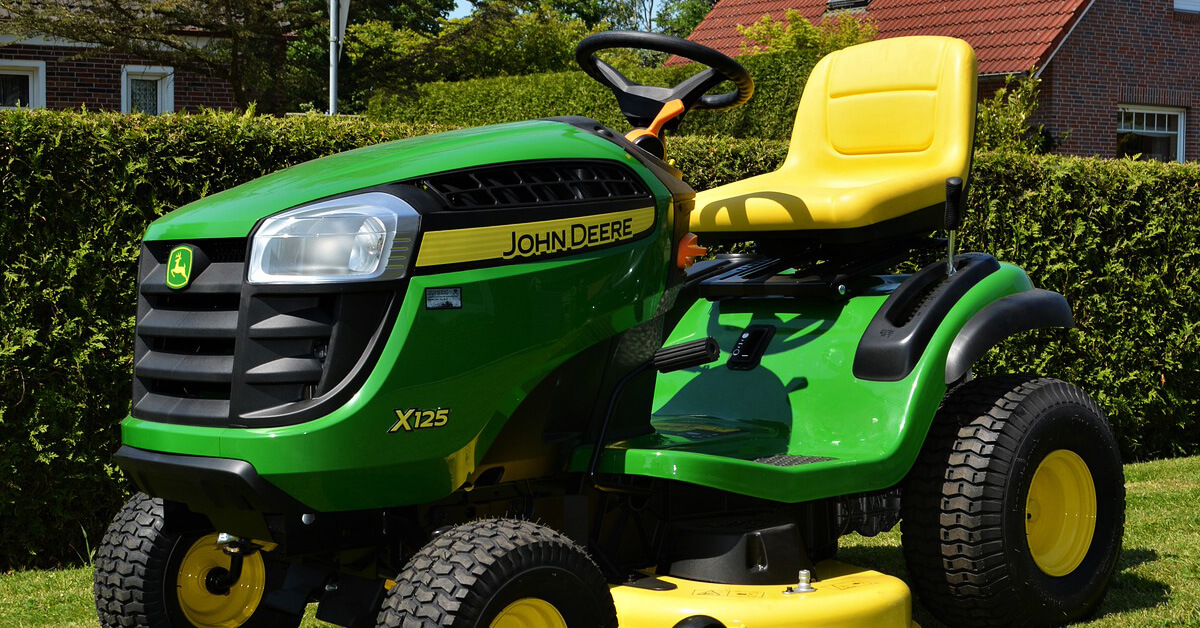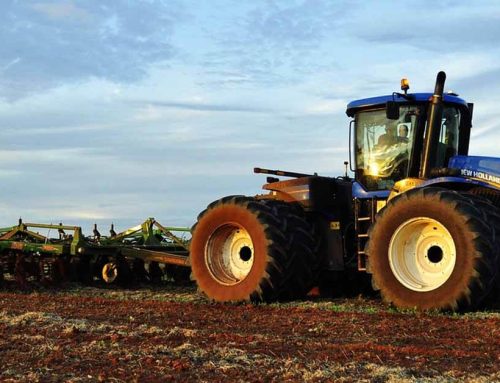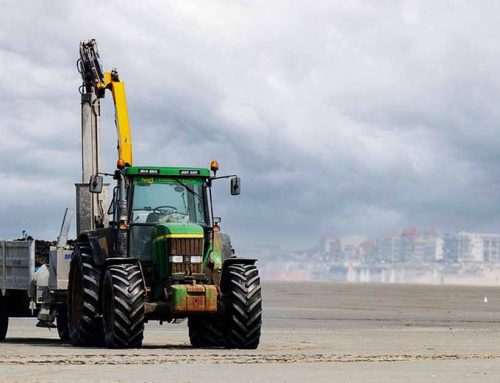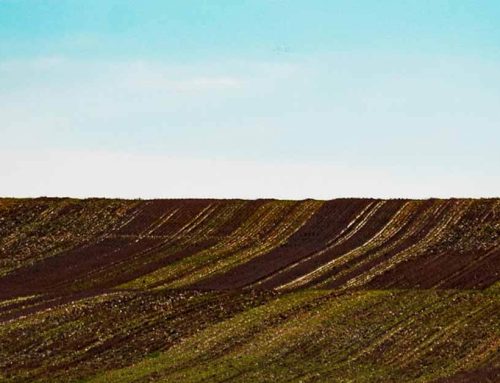The John Deere 318, a compact and versatile utility tractor, has long been a staple in the small-scale farming and landscaping industries.
Designed with a focus on durability, efficiency, and user-friendly operation, the 318 is a prime example of John Deere’s commitment to innovation and reliability.
This technical overview delves into the key mechanical specifications, engine performance, and transmission system of the John Deere 318, offering a detailed and insightful analysis for professionals and enthusiasts alike.
John Deere 318 Engine Specifications
At the heart of the John Deere 318 is a robust and efficient engine that ensures consistent power delivery and reliability under various operating conditions.
The tractor is equipped with a John Deere 4045T engine, a four-cylinder, liquid-cooled, inline diesel engine that delivers a balance of power and fuel efficiency.
The 4045T engine is renowned for its durability and low maintenance requirements, making it an ideal choice for small to medium-sized farms and commercial landscaping operations.
Its compact design also contributes to the overall efficiency and maneuverability of the tractor.
Engine Design:
These engines are air-cooled with foam and paper air cleaners, and operate at idle speeds ranging from 1350 to 3450 RPM.
They utilize a 12-volt electric starter system and spark plugs such as NGK BPR5EFS or Champion RS14YC with a gap of 0.025 inches (0.635 mm).
Engine Models:
The John Deere 318 was powered by Onan two-cylinder, air-cooled, horizontal-shaft opposed twin engines.
From 1983 to 1986, it used the Onan B43G engine with a displacement of 709 cc (43.3 cubic inches), and from 1987 through the end of production in 1992, it featured the Onan P218 engine with a displacement of 781 cc (47.7 cubic inches).
Engine Type: 4-cylinder, inline, liquid-cooled, diesel
Displacement: 2.4 liters (147 cubic inches)
Power Output:
Both engines deliver a gross power of 18 horsepower (13.4 kW).
The later P218 engine has a slightly higher compression ratio of 7:1 compared to 6.5:1 in the B43G, and produces a torque of 31 lb-ft (42 Nm) at 2200 RPM.
Torque: 45.5 lb-ft (61.7 N·m) at 1,800 rpm
Fuel System: Direct injection with a high-pressure fuel pump
Vibration and Cooling:
Liquid-cooled with a centrifugal water pump and radiator
Engine mounts feature rubber isolation pads to minimize vibration, while a hydraulic oil cooler prevents overheating during extended use.
Lubrication System: Pressure lubrication with an oil filter and oil cooler.
John Deere 318 Transmission System
The transmission is designed for smooth and precise gear shifts, allowing operators to maintain optimal performance across different terrains and tasks.
The John Deere 318 features a mechanical transmission with a 3-speed forward and 1-speed reverse configuration.
This setup is well-suited for a wide range of tasks, from mowing and tilling to hauling and light grading.
Transmission Type: 3-speed manual with a power take-off (PTO)
Gear Ratios:
1st Gear: 5.46:1
2nd Gear: 2.96:1
3rd Gear: 1.75:1
Reverse Gear: 1.75:1
PTO Speeds: 540 rpm (standard)
Clutch Type: Dry single-plate clutch with a hydraulic actuation system
John Deere 318 Power Take-Off (PTO) System
The PTO system enables the use of a wide array of attachments, such as mowers, cultivators, and snow blowers, expanding the tractor’s versatility.
The John Deere 318 is equipped with a mechanical PTO system that provides power to attached implements.
The tractor features an independent front PTO with an electric clutch, utilizing a pulley type system.
An optional rear PTO operating at 2000 RPM can be added for additional implement compatibility.
PTO Output: 23.5 horsepower (17.5 kW)
PTO Speed: 540 rpm (standard)
PTO Engagement: Manual via a lever located on the operator’s console
John Deere 318 Hydraulic System
The hydraulic system ensures smooth and responsive operation, making it easier for operators to handle attachments and perform precise tasks.
It features a single-acting hydraulic lift with a two-stage lift mechanism.
These hydraulic circuits manage the mowing deck elevation and auxiliary implements such as front blades or rear tillers.
Hydraulic Pump: Gear-type pump with a flow rate of 3.5 gallons per minute (13.2 liters per minute)
Lift Capacity: 1,000 pounds (454 kg)
Lift Mechanism: Two-stage lift for improved control and stability
Hydraulic Attachments: Compatible with a wide range of implements, including mowers, blades, and cultivators.
John Deere 318 Steering and Braking System
The steering system is designed for ease of use, allowing operators to navigate through challenging terrains with minimal effort.
The braking system is reliable and provides sufficient stopping power for the tractor’s weight and operating conditions.
It uses differential mechanical drum brakes, providing reliable stopping power suitable for garden tractor applications.
Steering Type: Front-wheel steering with a hydraulic power-assisted system
Braking System: Mechanical drum brakes on the rear wheels
Parking Brake: Mechanical cable-actuated system
John Deere 318 Electrical System
The electrical system of the John Deere 318 is designed to support the operation of the engine, lighting, and other essential components.
Battery: 12-volt lead-acid battery
Alternator: 12-volt alternator with a 35-amp output
Lighting System: Headlights, taillights, and a 12-volt electrical system for attachments
The electrical system is simple yet effective, ensuring reliable operation in a variety of conditions.
John Deere 318 Chassis and Frame
The John Deere 318 features a steel frame that provides a strong and durable foundation for the tractor.
The frame is designed to withstand the rigors of daily use and is reinforced in key areas to enhance stability and longevity.
Frame Type: Box-section steel frame
Wheelbase: 49.2 inches (125 cm)
Tire Size: 16×6.50-8 (front), 18×8.50-10 (rear)
Ground Clearance: 11.2 inches (28.4 cm)
The compact design and sturdy frame make the 318 an ideal choice for small farms, orchards, and landscaped areas where maneuverability is essential.
John Deere 318 Operator Station
The operator station of the John Deere 318 is designed with ergonomics and comfort in mind, ensuring that operators can work efficiently for extended periods.
Seat Type: Adjustable seat with a padded cushion
Control Layout: Intuitive and user-friendly layout
Visibility: Wide field of view for improved safety and precision
Climate Control: No air conditioning (standard model), but optional climate control available
The operator station is a key factor in the tractor’s overall usability, contributing to operator comfort and productivity.
John Deere 318 Attachments and Versatility
The John Deere 318 supports a wide range of attachments, enhancing its utility beyond mowing:
Mid-mount mower decks available in 38″, 46″, and 50″ widths
Front blades with manual or hydraulic angle control
Two-stage and single-stage snow blowers with clearing widths of 46 to 47 inches
Front-end loader (Model 44)
Rear tillers, rear-mounted mowing decks, and vacuum-powered grass and leaf collection systems (requiring optional rear PTO and three-point hitch).
John Deere 318 Dimensions and Weight
The tractor has a wheelbase of 46 inches (116 cm), a length of approximately 68.5 inches, width of 44 inches, and height of 44 inches.
Its weight ranges from 780 to 836 pounds depending on configuration.
Conclusion
The John Deere 318 is a well-rounded utility tractor that combines power, efficiency, and versatility in a compact and durable package.
Its robust engine, reliable transmission, and versatile PTO system make it an excellent choice for a wide range of agricultural and landscaping applications.
Whether used for mowing, tilling, or hauling, the John Deere 318 delivers consistent performance and long-term reliability.
For professionals and enthusiasts alike, the John Deere 318 represents a solid investment in a machine that is built to last and perform under demanding conditions.
Its mechanical design and engineering reflect the legacy of John Deere, offering a blend of innovation, quality, and practicality that continues to serve the needs of farmers and landscapers around the world.






Leave A Comment